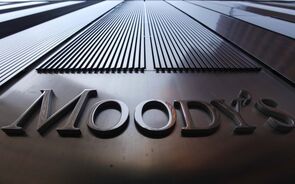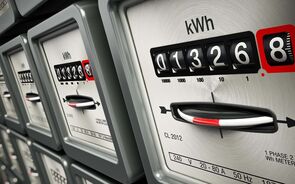Cramer:"Three of Five Post-Rally Threats Have Lessened
2 mensagens
|Página 1 de 1
É evidente que o FED tem agido da única forma possível para evitar o desastre imediato e pelo menos comprar tempo: tem feito uma descida super-agressiva das taxas, para suster o sistema financeiro americano.
Uma corrida aos bancos em Wall Street, como de facto aconteceu no caso do Bear Stearn, era impensável; desde logo limitar o colapso desse banco às perdas dos seus accionistas, impedir o seu alastramento (a Lehman chegou a cair quase 40% no dia seguinte...!) foi um sucesso enorme - foi um feito heróico, de se lhe tirar o chapéu !
Salvar a banca de investimento era/é essencial no curto prazo. Eu não discuto isso, o que questiono é se com estas medidas o FED vai resolver o problema de fundo, de médio-longo prazo: o excesso de crédito como forma de fazer crescer uma economia, como processo estrutural de criação de riqueza.
Parece-me que este modelo nos States - a tal asset-based economy que hoje noutro tópico tão bem está descrita - encontra-se esgotado no tempo.
Veremos o que se vai passar. Ab+Bn.
Uma corrida aos bancos em Wall Street, como de facto aconteceu no caso do Bear Stearn, era impensável; desde logo limitar o colapso desse banco às perdas dos seus accionistas, impedir o seu alastramento (a Lehman chegou a cair quase 40% no dia seguinte...!) foi um sucesso enorme - foi um feito heróico, de se lhe tirar o chapéu !
Salvar a banca de investimento era/é essencial no curto prazo. Eu não discuto isso, o que questiono é se com estas medidas o FED vai resolver o problema de fundo, de médio-longo prazo: o excesso de crédito como forma de fazer crescer uma economia, como processo estrutural de criação de riqueza.
Parece-me que este modelo nos States - a tal asset-based economy que hoje noutro tópico tão bem está descrita - encontra-se esgotado no tempo.
Veremos o que se vai passar. Ab+Bn.
James Wheat
Position Trader
Position Trader
- Mensagens: 1800
- Registado: 24/5/2006 12:33
- Localização: Porto
Cramer:"Three of Five Post-Rally Threats Have Lessened
"Three of Five Post-Rally Threats Have Lessened"
By Jim Cramer
RealMoney.com Columnist
3/19/2008 7:01 AM EDT
"After big runs, you immediately hear the following:
1. Earnings are going to be terrible.
2. Commodity prices are out of control.
3. Housing prices are still falling.
4. Credit is a real problem and mortgages are hard to come by and at higher prices.
5. Someone else -- a bank, a credit firm, a monoline -- is about to fail.
Then we go down again. And we get frightened.
I don't have anything to counter the first one. I particularly think that tech earnings are going to be bad, like those out of Sony Ericsson. I think the only big winners in tech will be those who go up against big losers, and the wins won't be that great anyway: Intel (INTC - commentary - Cramer's Take) over AMD (AMD - commentary - Cramer's Take), Cisco (CSCO - commentary - Cramer's Take) over everybody, Apple (AAPL - commentary - Cramer's Take) over everybody. The safe place is real-economy "Rest of World"ers like CSX (CSX - commentary - Cramer's Take) and U.S. Steel (X - commentary - Cramer's Take) and Nucor (NUE - commentary - Cramer's Take), or the drug stocks with big overseas exposure.
Commodity prices? What can I say, oil's going to $125, where hopefully people will drill enough to find more, or we will switch to the much more abundant natural gas, which is why I like that group so much. The other commodity pressures are political. That's ethanol. Maybe a new regime will realize that, but this one's so awful about ethanol I can't bear it.
But three, four and five are changing a tad, which means that the rate of rate of change of the declines in housing and brokerage may be slowing. Or in non-calculus: Things aren't getting as bad as fast as they were.
In six more months the bulk of the resets of the heinous 2-and-28 mortgages -- encouraged if not pushed by Greenspan and Bernanke -- will have run their course. The maximum bulge of horrible resets starts right now, the second through fourth quarters of 2006, the housing peak. It's the worst part. But then it is over.
That matters. Because these resets are either causing people not to spend or they are causing people to abandon their homes. Both add to a recession, and the latter brings down the housing prices around the home, causing deflation.
In the last 48 hours though, we have seen a 75-basis-point cut in short rates, a deal reached where Fannie Mae (FNM - commentary - Cramer's Take) can start lending and buying its own bonds back, and a dramatic decline in housing starts, again. Fewer homes, more abundant credit, at lower rates: That's how you attack the crisis head on, and it is being done. I can't emphasize enough how important it is to get Fannie Mae to help lower rates as its mortgage paper is what's trading so crazily and keeping rates high. When you think that the facility that allows banks to swap bad bonds for cash for 28 days, you can see that the non-Treasury side of the ledger just got a lot better.
If you couple those positives with the idea that when, not if, banks fail we just call up a bigger, better bank and tell them they don't have to pay up for the equity and the Fed will practically guarantee the transaction's profits, we know that the systemic risk is now taken off the table for all but a collapse of Citigroup (C - commentary - Cramer's Take), which is, unfortunately, still too big to fail.
All of these problems are going to linger. All of these problems haven't vanished. But all of them didn't get worse lately, in fact they got a little better. "
(in www.realmoney.com)
By Jim Cramer
RealMoney.com Columnist
3/19/2008 7:01 AM EDT
"After big runs, you immediately hear the following:
1. Earnings are going to be terrible.
2. Commodity prices are out of control.
3. Housing prices are still falling.
4. Credit is a real problem and mortgages are hard to come by and at higher prices.
5. Someone else -- a bank, a credit firm, a monoline -- is about to fail.
Then we go down again. And we get frightened.
I don't have anything to counter the first one. I particularly think that tech earnings are going to be bad, like those out of Sony Ericsson. I think the only big winners in tech will be those who go up against big losers, and the wins won't be that great anyway: Intel (INTC - commentary - Cramer's Take) over AMD (AMD - commentary - Cramer's Take), Cisco (CSCO - commentary - Cramer's Take) over everybody, Apple (AAPL - commentary - Cramer's Take) over everybody. The safe place is real-economy "Rest of World"ers like CSX (CSX - commentary - Cramer's Take) and U.S. Steel (X - commentary - Cramer's Take) and Nucor (NUE - commentary - Cramer's Take), or the drug stocks with big overseas exposure.
Commodity prices? What can I say, oil's going to $125, where hopefully people will drill enough to find more, or we will switch to the much more abundant natural gas, which is why I like that group so much. The other commodity pressures are political. That's ethanol. Maybe a new regime will realize that, but this one's so awful about ethanol I can't bear it.
But three, four and five are changing a tad, which means that the rate of rate of change of the declines in housing and brokerage may be slowing. Or in non-calculus: Things aren't getting as bad as fast as they were.
In six more months the bulk of the resets of the heinous 2-and-28 mortgages -- encouraged if not pushed by Greenspan and Bernanke -- will have run their course. The maximum bulge of horrible resets starts right now, the second through fourth quarters of 2006, the housing peak. It's the worst part. But then it is over.
That matters. Because these resets are either causing people not to spend or they are causing people to abandon their homes. Both add to a recession, and the latter brings down the housing prices around the home, causing deflation.
In the last 48 hours though, we have seen a 75-basis-point cut in short rates, a deal reached where Fannie Mae (FNM - commentary - Cramer's Take) can start lending and buying its own bonds back, and a dramatic decline in housing starts, again. Fewer homes, more abundant credit, at lower rates: That's how you attack the crisis head on, and it is being done. I can't emphasize enough how important it is to get Fannie Mae to help lower rates as its mortgage paper is what's trading so crazily and keeping rates high. When you think that the facility that allows banks to swap bad bonds for cash for 28 days, you can see that the non-Treasury side of the ledger just got a lot better.
If you couple those positives with the idea that when, not if, banks fail we just call up a bigger, better bank and tell them they don't have to pay up for the equity and the Fed will practically guarantee the transaction's profits, we know that the systemic risk is now taken off the table for all but a collapse of Citigroup (C - commentary - Cramer's Take), which is, unfortunately, still too big to fail.
All of these problems are going to linger. All of these problems haven't vanished. But all of them didn't get worse lately, in fact they got a little better. "
(in www.realmoney.com)
2 mensagens
|Página 1 de 1
Quem está ligado:
Utilizadores a ver este Fórum: Google [Bot], m-m e 222 visitantes



